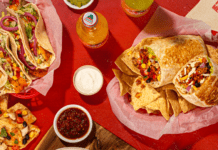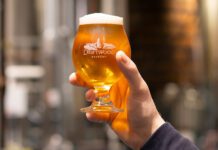Can we decrease food waste by using artificial intelligence?
Food waste is a thorn in the side of the hospitality industry in North America and around the globe. In the hospitality business alone, US$100 billion worth of food is discarded, reducing profits and causing environmental damage. To tackle this problem, artificial-intelligence (AI) business Winnow has launched a tool to automate food-waste management and cut food costs in kitchens by three to eight per cent.
Global retail leader IKEA and Middle-East based hotel group Emaar Hospitality have trialed Winnow’s new technology — Winnow Vision — in their kitchens since January 2018. During this successful pilot phase, the tool surpassed the level of accuracy of kitchen teams in categorising waste foods. With time, the model will gather more data and get even more accurate.
The challenge for the hospitality industry is to cut food waste in half by 2030 — and Winnow’s AI provides a path to achieve that after a successful period of testing.
Using a camera positioned over bin, a set of scales and the same type of machine-learning technology found in autonomous vehicles, Winnow Vision ‘learns’ to recognize different foods being thrown in the bin. From this, it’s able to determine the financial and environmental cost of the discarded food.
Winnow’s data reveals the average group of commercial kitchens waste between five and 15 per cent of purchased food. Some kitchens waste up to 20 per cent of all food purchased, leaving a huge opportunity for technology to help streamline kitchen processes.
Winnow Vision is the first AI product to launch in the commercial kitchen to tackle food waste at scale. Now installed in over 75 kitchens, the technology is ready to be deployed across the Americas.
There are three key advantages for hospitality businesses to adopt AI.
- Significantly cut kitchen costs. In complex kitchen environments, having the technology to track waste leads to you running a more profitable kitchen.
- More accurate data. Food waste reduction is more straightforward as kitchen teams will receive better insight on what is being wasted and in what volume. The captured photos validate 100% of your data, giving you the confidence that the data is reliable.
- More time for kitchen teams. Once the system is trained in the kitchen environment, there is minimal data entry or staff training required.
For IKEA, reducing food waste has also been an opportunity to restate their position as a leader in sustainability. In the UK, food waste has been reduced by over 50%. This equates to 1.2 million meals of food saved each year, and a materially lower carbon footprint. On a global scale, IKEA is on course to reach their target of 50% reduction by August 2020.
Lorena Lourido, Country Food Manager at IKEA UK & Ireland, said: “At IKEA, we want to inspire and enable the many people to change their behaviour when it comes to food waste, starting in our own operations. Winnow Vision has now been installed across 23 IKEA UK & Ireland stores and the feedback from the IKEA Food teams running our restaurant kitchens has been extremely positive so far.”
Winnow is already working with an international group of clients spanning the hospitality sector, saving $40 million Canadian dollars for clients annually. Clients include some of the biggest names in hospitality like Compass Group, Elior, Accor, IHG and Hilton.
With the development of Winnow Vision, Winnow aims to save hospitality businesses over $1 billion by 2025.
If you want to learn how your kitchen could reduce costs with a food waste tool like Winnow Vision, request a demo today.


















